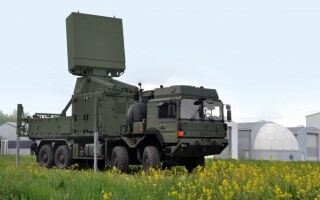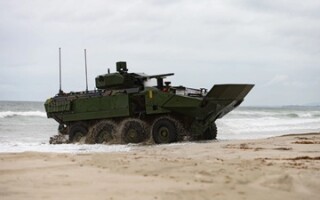Ensuring microelectronics are counterfeit resistant, goal of Navy R&D
NewsJune 21, 2018
INDIANAPOLIS. A new cooperative research and development agreement (CRADA) will drive the development of trusted microelectronics that are are counterfeit resistant and immune to a wide variety of attacks. The Indiana Innovation Institute (IN3) and Naval Surface Warfare Center, Crane Division (NSWC Crane) have joined forces with Purdue University and Indiana University under the CRADA.
The CRADA allows the four entities to work collaboratively ensuring open communication of technical requirements, research results, and the sharing of intellectual property between the parties.
“Partnerships like these leverage our state’s strongest assets to help Indiana emerge as a global leader in cutting edge fields like trusted microelectronics,” Gov. Eric Holcomb says. Securing the nation’s semiconductor supply chain has national security implications and affects many Indiana companies which use microelectronics in their products.
The four organizations are partnering to combine their complementary strengths in science, engineering, and mission focus to address gaps in microelectronic integrity in three critical areas:
- Inherently secure and adaptable hardware and software
- Ultra-reliable hardware under extreme conditions
- Counterfeit prevention and detection
NSWC Crane has been intentional about working with regional stakeholders in the development of a defense innovation ecosystem. The effort makes extensive use of technology transfer (T2) mechanisms, such as CRADAs, to link NSWC Crane’s research and development to innovation ecosystem partner organizations.
The path a new technology faces in evolving from initial idea to useful product or capability often requires multiple transitions and partners. IN3, the region’s new applied research institute, serves a critical role in this technology evolution. “The state of Indiana has long had a need for applied research activities that bridge the gap between university research and practical implementation and productization of the technology” says Purdue President Mitch Daniels. “This CRADA creates the collaborations required to support these product development processes and Purdue is very excited to partner with the Indiana Innovation Institute on this important initiative.”
The relationships formally established under this CRADA are a source of technology that IN3 is using to build their pipeline, and establishes a critical mass of regional partners dedicated to bringing the next generation of new systems and products to the Department of Defense. "This CRADA highlights Indiana University’s longstanding partnership with NSWC Crane and its developing relationship with the Indiana Innovation Institute,” says Michael McRobbie, president of Indiana University. “It is also emblematic of how IU works to bring its resources to bear to help strengthen national security. This agreement is powerful, in that IU and Purdue will partner with IN3 and Crane in a four way agreement to allow IU, IN3, and its research partners to collaborate on the mutual research and technology of trusted microelectronics.”

The CRADA supports a recent $2.3 million contract awarded by IN3 to Purdue University that focuses on developing technologies that address liability, security and anti-counterfeiting in the supply of semiconductors to the U.S. Department of Defense (DoD). Indiana University and the University of Notre Dame are subcontractors on the research contract and the work is in support of NSWC Crane. The program, called Achieving Scientifically Secured User Reassurance in Electronics (ASSURE), will address vulnerabilities in military electronics, will create a national research center of excellence in trusted and reliable military electronics and will establish partnerships that will drive research, workforce training, and economic development in Indiana.





